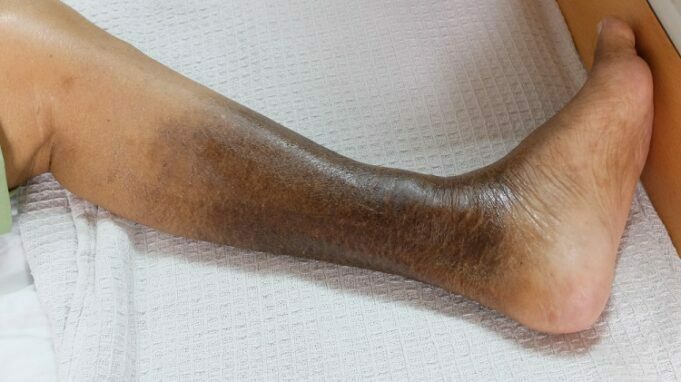The most crucial components of the circulatory system include blood vessels which help to transport blood throughout the body. While the arteries transport blood from the heart to the body, the veins make sure that blood moves from tissues back to the heart. However, patients with chronic venous insufficiency Davenport have problems in their veins and thus do not transport all blood back to the heart, thus leading to an accumulation of blood in the legs and feet. It is essential to seek an accurate diagnosis of your symptoms for your doctor to determine the underlying cause of your condition and thus develop a treatment plan that will restore wellness.
The veins have large spaces through them, thus making the blood that flows inside veins go under relatively lower pressure than in the arteries. For this reason, veins have valves that prevent the backflow of blood. However, whenever trauma or disease affects the valves, blood may flow backward. The more blood collects in your legs and feet, the higher your risk of complications that present as symptoms. Some of the symptoms patients with chronic venous insufficiency present include inflammation and pain that make it difficult to walk or attend work.
Table of Contents
What are the causes of chronic venous insufficiency?
One of the leading causes of chronic venous insufficiency is the presence of a blood clot that may restrict blood flow. This condition is known as deep vein thrombosis. Patients with this condition trigger symptoms after standing or sitting for a long time, increasing pressure in the peripherals and weakening valves. Specific factors might increase a patient’s risk of deep vein thrombosis and subsequent chronic venous insufficiency. For example:
- Obesity: Physicians encourage patients to maintain their weight at healthy levels to decrease the pressure on the legs and thus prevent symptom occurrence.
- Being over 50: The older you are, the weaker your valves become because they have served a long time. For this reason, you need to take more care of your health to prevent getting chronic venous insufficiency.
- Pregnancy: There are many reasons pregnant women are vulnerable to chronic venous insufficiency. Hormones can cause the valve to weaken and thus disrupt blood flow. However, pregnancy is a risk factor for chronic venous insufficiency because a woman’s legs and feet carry a lot of weight, including the woman and her unborn baby.
- Smoking: Physicians usually discuss with patients on their lifestyle to detect any habits that might jeopardize venous structure and function. Smoking is a hazardous habit that may weaken the valves over time.
- Family history of blood clots: Physicians usually take time to review a patient’s family and medical history to recognize any genetic predisposition to the disease. Suppose you have anyone in your family with a positive diagnosis of blood clots, primarily deep vein thrombosis. In that case, you are at risk of developing the condition, which may trigger chronic venous insufficiency.
Contact Vascular Vein Centers to schedule a comprehensive evaluation of your symptoms to confirm your chronic venous diagnosis and begin a treatment plan that will guarantee restored blood flow in your legs and feet.










